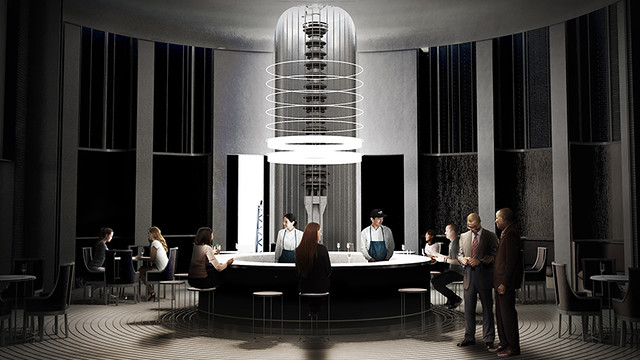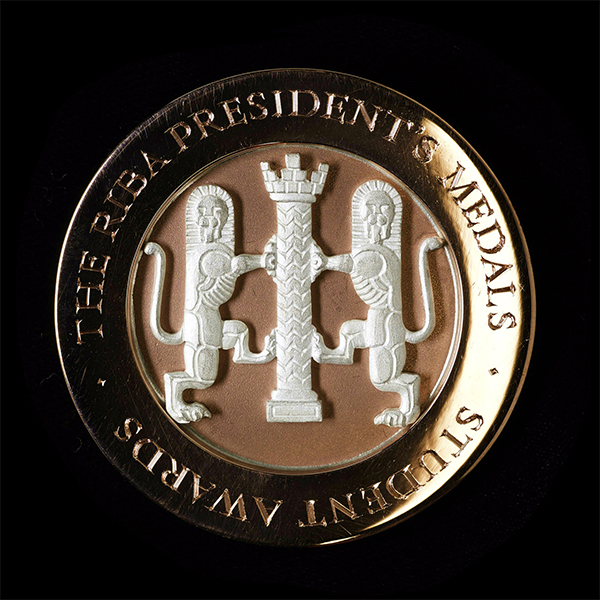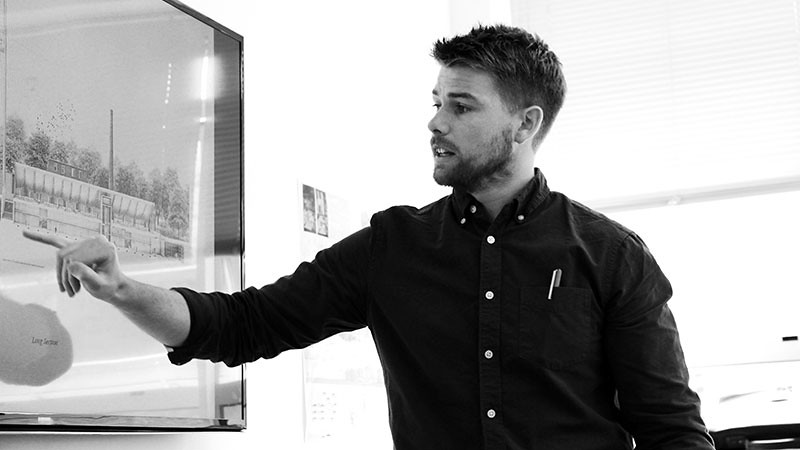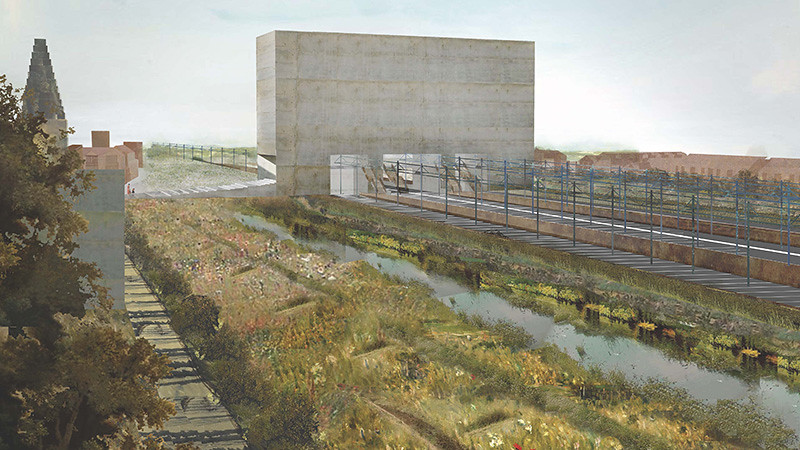During the final year of their BSc degrees, our architecture students undertake a semester-long individual project, where they must develop their own briefs from an initial outline. This is an opportunity for students to immerse themselves in a particular topic and assert their own architectural voice.
Justin developed his project on the boundary between reality and science fiction. A hotel set among the wires and pylons of Chickerell, an electrical substation about 2km from Weymouth's town centre.
“At the outset of the project, I was inspired by the fantastical images of Chesley Bonestell. His artwork helped to inspire the US space programme. I fell in love with the idea that these science fiction images could be powerful enough alone to persuade people to explore our solar system. If an image can have such powerful implications, a sublime architecture project has the opportunity to do the same.”
A fantastical and provocative design
Justin wanted to design a building through which he could investigate our fear, fascination and love for technology. He chose a hotel, as it would incorporate the many different realms of human activity in which to explore this.
“For me, the substation site represents technophobia, a sensation stemming from the machines and systems that have polluted the environment, replaced jobs and destroyed species; maybe even our own in the future! Basing the hotel within a substation not only questions how humans live alongside machines, but also how our technological world impacts the natural world. Our approach should not be to conceal and forget.”
Justin’s hotel uses repeating modules and curving walls to fit among the existing structures of the substation. He approached the project by studying photos and historic plans of the Chickerell site, and then used coding to map the electromagnetic radiation that would form the limitations of the scheme.
A combination of insulating materials (brick, ceramic and timber) surround conducting elements within the skin of the building. These conducting elements earth any electrical charge, creating the Faraday Effect. This protects the hotel's inhabitants from the dangerous environment outside.
Presenting the ordinary in the presence of the extraordinary
The hotel spreads across two floors with service and staff spaces on the ground floor. These connect upwards to the opulent guest spaces above. Communal areas including a ballroom, bars and a restaurant sit at the heart of the design with the bedrooms extending out in two long spines.
Justin's design celebrates the proximity of the substation rather than hiding it. Guests enter the hotel by a raised walkway, enclosed by a metal mesh passing below charged cables. The interior design of the hotel incorporates elements of the substation either wrapped into wall enclosures or descending from the roof. In the lobby, an electrical insulator sits within the centre of the space like a chandelier.
“Observing these electrical objects out of context creates a different experience to seeing the substation as a whole. You can appreciate the intricacy and delicate details of these objects, marking a transition from the unknown to the physical.”
The contrast between nature and machine is continually reinforced. The hotel's large windows open on to peaceful landscape views. When guests wash their hands they hear the sizzle of water hitting the surface of electrically conducting elements, never far away from the knowledge that electricity is pulsing all around them.
Altering perspectives on architecture
Justin’s design beat 125 entries from across the world to receive the RIBA Bronze Medal. He was presented with his award by the RIBA President before his work tours as part of a wider exhibition of medal-winning entries. Justin has now graduated from the University of Bath and is studying for his Master of Architecture (MArch) at the Royal College of Art in London.
“This project allowed me to begin investigating the way I wish to practice architecture in the future. I strongly believe that the discussions I have had throughout this project have sparked ways of thinking which are vital to the profession. Built form and the machine age will always have differences, but there is incredible scope for parallel development, which can transform the way we inhabit space and communicate with one another.
"From winning the Bronze Medal I have been inspired to continue experimenting with radical ideas. Architects have a unique opportunity to provoke a response through the medium of imagery. I hope for my work to inspire us all to push boundaries of what we think architecture is - that is the future I would like to see.”




